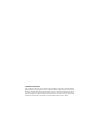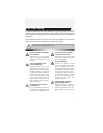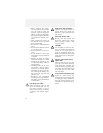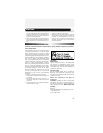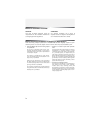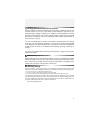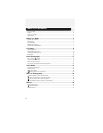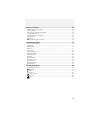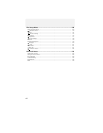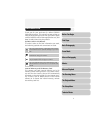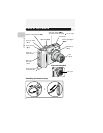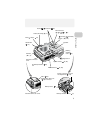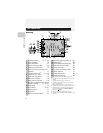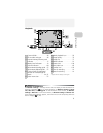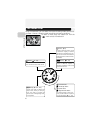
ii
• Before replacing the battery,
turn the product off and make
sure the power-on lamp has
gone out. If you are using an AC
adapter, be sure it is unplugged.
• Use only rechargeable Nikon EN-
EL5 lithium-ion batteries (sup-
plied).
• When inserting the battery, do
not attempt to insert it upside
down or backwards.
• Do not short or disassemble bat-
teries.
• Do not expose batteries to flame
or to excessive heat.
• Do not immerse in or expose to
water.
• Do not transport or store with
metal objects such as necklaces
or hairpins.
• Batteries are prone to leakage
when fully discharged. To avoid
damage to the product, be sure
to remove the battery when no
charge remains.
• Immediately after use, or when
the product is used on battery
power for an extended period,
the battery may become hot. Be-
fore removing the battery, turn
the camera off and allow the
battery to cool.
• Discontinue use immediately
should you notice any change in
the battery, such as discoloration
or deformation.
Use appropriate cables
When connecting cables to the
input and output jacks, use only
the cables provided or sold by
Nikon for the purpose, to maintain
compliance with product regula-
tions.
Keep out of reach of children
Particular care should be taken to
prevent infants from putting the
batteries or other small parts into
their mouths.
Removing memory cards
Memory cards may become hot
during use. Observe due caution
when removing memory cards
from the camera.
CD-ROMs
The CD-ROMs on which the soft-
ware and manuals are distributed
should not be played back on
audio CD equipment. Playing CD-
ROMs on an audio CD player could
cause hearing loss or damage the
equipment.
Observe caution when operat-
ing the flash
Using the flash close to your sub-
ject’s eyes could cause temporary
visual impairment. Particular care
should be observed if photograph-
ing infants, when the flash should
be no less than one meter (39”)
from the subject.
Avoid contact with liquid crystal
Should the monitor break, care
should be taken to avoid injury due
to broken glass and to prevent liq-
uid crystal from the monitor touch-
ing the skin or entering the eyes or
mouth.




